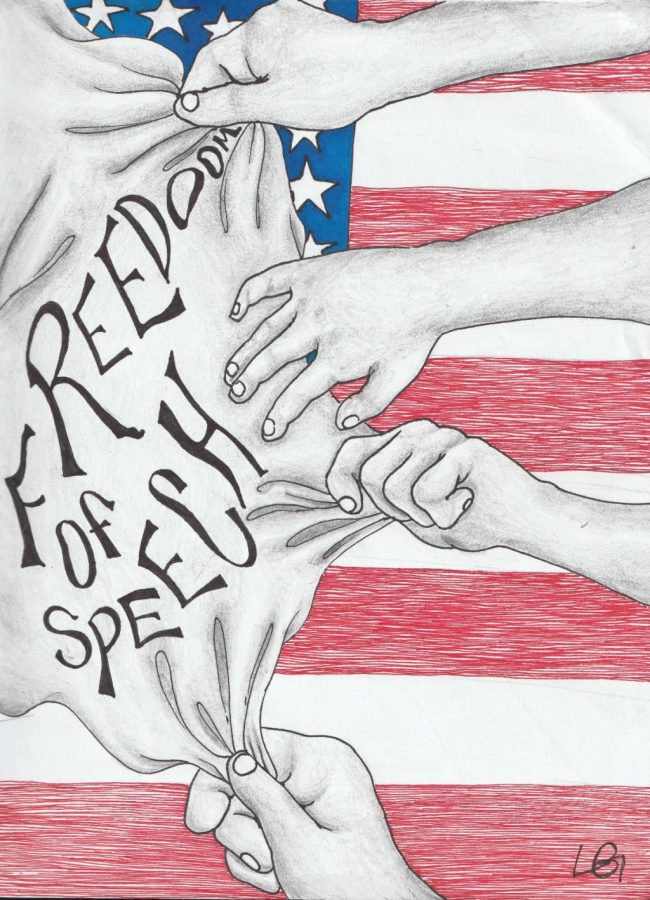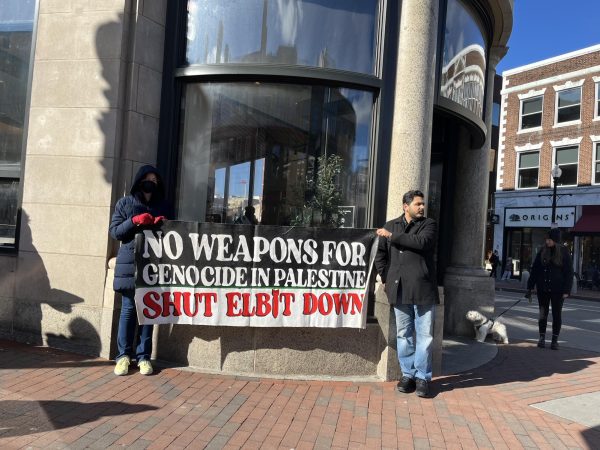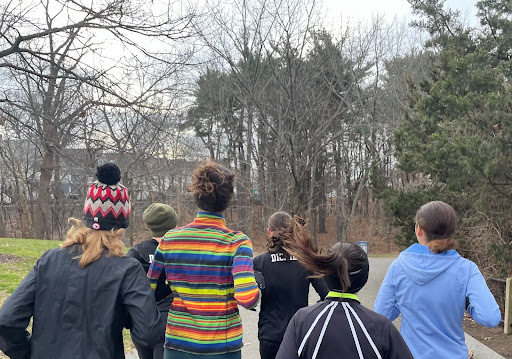When Invoking the First Amendment, Exercise Restraint
December 19, 2017
What’s more important than free speech? Many would say nothing. The rights guaranteed by the First Amendment—collectively known as freedom of expression—are protections almost completely unique to our country. However, freedom of speech exists so that you can’t be hurt for what you say, not as a tool for the purpose of inflicting pain on others.
To be clear, in terms of law enforcement or policy, nothing should change about the First Amendment. But recently, there has been an increased culture of abusing freedom of speech in order to preserve it, and, in doing so, our most cherished freedom has been warped and mutilated beyond recognition.
The First Amendment guarantees the rights of free assembly, press, religion, and speech, and now—according to many modern Americans—the right to be blatantly racist, misogynistic, homophobic, and all-around offensive in order to keep political correctness in check.
Good people can sympathize with others enough to understand that certain words or phrases are hurtful and should not be said in most contexts. In many cases, using a derogatory term to describe a person has been deemed protected speech, and hate groups have taken this as a go-ahead to use them whenever. According to a 2015 poll by the Pew Research Center, 40% of millennials believe that there should be punitive damages for using offensive language.
Though I find the majority of what these hate groups are saying disgusting and pathetic, and I would love to see them get sued and lose all their money, I respect their right to say whatever they want. I just think they’re not very good people, and I feel the same way about anyone else who makes a mockery of the First Amendment by goading others into anger. I’ll even admit that it’s strangely noble to sacrifice being a decent person to protect the First Amendment. But the events of the rally in Charlottesville this year were a test of the boundaries of free speech, and it ended with the loss of human life. It wasn’t worth it.
Freedom of speech will not go away if you go five minutes without mentioning it—if anything, it will become more powerful if it is invoked sparingly. For example, many CRLS students have taken part in protests, counter-protests, and marches for civil rights, and these assemblies are perfectly appropriate—so long as they remain civil and peaceful, as the First Amendment allows. We can’t have freedom of speech if we don’t use it right.
There are places in the world that need free speech now more than ever, and when Americans play with that right just to feel good or promote a bigoted agenda, we risk ruining it for everyone else on the planet. In the end, free speech is something that should be available to all, but this does not mean it should be treated as a toy—or, worse yet, as a weapon.
This piece also appears in our December print edition.










